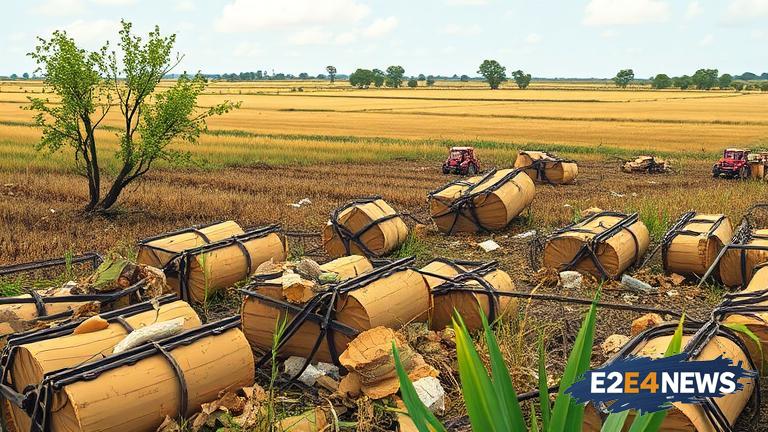A comprehensive report has shed light on the staggering amount of crop loss and waste in Australian farms, sparking concerns over the country’s food security and economic stability. The report reveals that a substantial portion of crops are being lost or wasted due to various factors, including pests, diseases, and extreme weather conditions. This not only affects the farmers’ livelihoods but also has a significant impact on the environment and the nation’s food supply. The agricultural sector is a vital part of Australia’s economy, and the loss of crops can have far-reaching consequences. According to the report, the average crop loss in Australian farms is around 20-30%, which translates to millions of dollars in lost revenue. The main causes of crop loss include pests, diseases, and extreme weather events such as droughts and floods. The report also highlights the issue of food waste, with a significant amount of produce being discarded due to cosmetic imperfections or other minor defects. This not only wastes resources but also contributes to greenhouse gas emissions and other environmental problems. The report’s findings have sparked calls for greater investment in agricultural research and development, as well as more effective strategies for managing pests, diseases, and extreme weather events. Farmers and industry experts are also advocating for changes to food labeling and packaging regulations to reduce food waste. The Australian government has announced plans to provide additional funding for agricultural research and development, as well as initiatives to support farmers affected by crop loss and waste. However, more needs to be done to address this critical issue and ensure the long-term sustainability of the country’s agricultural sector. The report’s authors are urging policymakers to take a more comprehensive approach to addressing crop loss and waste, including investing in sustainable agricultural practices and supporting farmers in adopting more efficient and effective farming methods. The issue of crop loss and waste is not unique to Australia, and other countries are also grappling with similar challenges. However, the report’s findings highlight the need for a coordinated and sustained effort to address this issue and ensure global food security. The report’s release has sparked a national conversation about the importance of sustainable agriculture and the need to reduce food waste. Farmers, industry experts, and policymakers are coming together to discuss solutions and strategies for addressing crop loss and waste. The report’s findings have also highlighted the need for greater public awareness and education about the issue of food waste and the importance of sustainable agriculture. By working together, Australia can reduce crop loss and waste, improve food security, and support the long-term sustainability of its agricultural sector. The report’s authors are confident that with the right policies and strategies in place, Australia can become a leader in sustainable agriculture and reduce its environmental footprint. The issue of crop loss and waste is complex and multifaceted, and addressing it will require a sustained and coordinated effort. However, by working together and adopting more sustainable and efficient farming practices, Australia can reduce crop loss and waste, improve food security, and support the long-term sustainability of its agricultural sector. The report’s findings have significant implications for policymakers, farmers, and industry experts, and highlight the need for a comprehensive and coordinated approach to addressing crop loss and waste. The report’s release has sparked a renewed focus on the importance of sustainable agriculture and the need to reduce food waste, and it is likely that this issue will remain a priority for policymakers and industry experts in the coming years.
